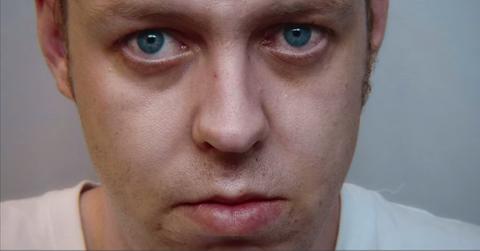Matthew Hardy Cyberstalked Roughly 25 Women in the United Kingdom — Where Is He Now?
"I just struggle with social media in general. Shouldn't be on it. I struggle to understand when enough's enough," said Hardy.
Updated Feb. 26 2024, 5:25 p.m. ET

Matthew Hardy
According to the Social Media Victims Law Center, cyberstalking is "when an electronic medium like a phone, email, social media site, or message board is used to harass, harm, or create fear in another." This harassment can come in many forms such as excessive contact comprised of threats, posting or threatening to post nude photos or videos, monitoring a person's location, and even pretending to be said person.
Matthew Hardy is a textbook cyberstalker and for 10 years he harassed multiple women in the United Kingdom using various frightening tactics. His story was laid out in the podcast Can I Tell You a Secret? which was turned into a Netflix documentary of the same name. In both the podcast and documentary, victims of Hardy share the horrendous trauma he put them through. Where is cyberstalker Matthew Hardy now? Here's what we know.
Matthew Hardy is no longer able to cyberstalk women because he is in prison.
In January 2022, Hardy was sentenced to nine years in prison at Chester Crown Court after he pled guilty to "stalking involving fear of violence and harassment, after breaching a restraining order which blocked him from using false details on social media platforms," reported The Independent. In the documentary, Sirin Kale, an investigative journalist for The Guardian, said ".1 percent of stalkers receive a criminal conviction. The average custodial sentence is a little over 13 months."

One of Matthew Hardy's many victims
Hardy's conviction was unusual and while he was being sentenced, Judge Steven Everett added context to the long stretch of prison time. He reiterated that the nine victims who were in court had “done nothing to harm you; you chose them at random." As a result of his harassment and abuse, these women were likely to be "affected for the rest of their lives."
Gina Martin, one of Hardy's victims, told The Independent the cyberstalking began in the summer of 2015. Seemingly out of nowhere, Martin started getting odd messages from friends and former coworkers but it didn't take long for her to realize these were fake accounts. She and Hardy attended secondary school together, which is how he knew her. Soon Hardy stole pictures from her social media and created fake accounts wherein he pretended to be Martin. This was his modus operandi with all the women.
Police didn't take Matthew Hardy's cyberstalking very seriously.
Hardy's activities were first reported in 2011 after he stole a woman's identity using Facebook, and proceeded to send sexually explicit messages as her. Samantha Boniface told the Northwich & Winsford Guardian in May of that year that a then 20-year-old Hardy took over her account and locked her out of it. In one exchange, Hardy messaged the father of one of Boniface's friends and solicited him. Eventually, he was sentenced to a suspended prison sentence, community service, and was ordered to pay a fine to Boniface.
This did nothing to discourage Hardy, who continued his various stalking and harassment campaigns for the next 10 years. When Cheshire police constable Kevin Anderson was assigned to a stalking case in 2019, he quickly learned that there were several victims connected to it and they all led to the same man. Despite all of the evidence gathered by Hardy's numerous victims, police never did anything beyond saying they would "look into it."
Anderson decided to take the strongest pieces of evidence, hence the nine victims in court, and focus on that. Hardy was arrested in February 2020 and initially denied any wrongdoing. In a recorded interview with a solicitor heard in the documentary, Hardy said he was very lonely and spent most of his time by himself in his flat.
"I just struggle with social media in general. Shouldn't be on it. I struggle to understand when enough's enough. I'm trying to get support," he told the solicitor.
It's important to note that Hardy was diagnosed with autism later in life. We also want to draw attention to something Kale said in the documentary. She was quick to point out that pleading guilty before a trial means you get a 25 percent reduction in your sentence. In October 2022, The Guardian reported that Hardy's nine-year sentence was reduced to eight years after three judges in the court of appeal felt nine was just too much. Tell that to Hardy's victims who are undoubtedly scarred for life.